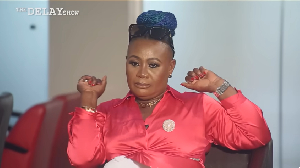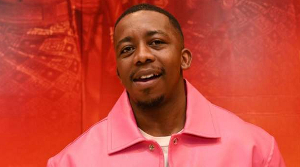- Home - News
- TWI News | TV
- Polls
- Year In Review
- News Archive
- Crime & Punishment
- Politics
- Regional
- Editorial
- Health
- Ghanaians Abroad
- Tabloid
- Africa
- Religion
- Election 2020
- Coronavirus
- News Videos | TV
- Photo Archives
- News Headlines
- Press Release
General News of Friday, 6 February 2015
Source: r. harry reynolds,
Ghana Using Social Protection To Fight Poverty
The Minister for Gender, Children and Social Protection, Nana Oye Lithur, has affirmed Ghana's determination to use Social Protection as a major tool to address poverty, inequality and vulnerability.
Contributing to a high-level panel discussion on "Rethinking and Strengthening Social Development in the Contemporary World" at the on going 53rd Commission for Social Development at the United Nations Headquarters in New York TODAY (February 3, 2014), she said a rationalization study of Social Protection Interventions in Ghana had been done to strengthen the system and make it more effective.
Delegates at the two-week session are seeking transformative, inclusive people-oriented approach to Post 2015 Social Development Goals.
In order to facilitate effective coordination, the Minister announced that, a Cabinet approved multi-sectoral governance framework at the National, Regional, District and Community levels had been developed.
Aside that, she said a National Policy on Social Protection to establish a Social Protection floor is being developed to contribute to poverty reduction and inequalities, improve productivity and incomes and enhance cohesiveness of the Ghanaian society.
Nana Oye Lithur announced that in November last year, a high level national conference on Social Protection was held, which led to a national consensus that is currently guiding her Ministry in strengthening Ghana's social protection system.
Key interventions being offered, the Minister said included cash transfers for poorest households(LEAP) and in-kind transfers, labour market programmes, labour Intensive Public Works, Health and Educational Interventions as well as a Savannah Accelerated Development Authority(SADA) programmes .
A single registry database on extreme poor and vulnerable groups is being created to select and register beneficiaries for their interventions.
For a start, the LEAP and National Health Insurance Programme are already using the pilot register to select their beneficiaries.
So far the LEAP which started in 2008 with only 1,645 households, currently covers more than 90,000 households and is projected to reach over two million by December this year.
She also revealed that the School Feeding programme had reached more than 1.7million school children, apart from creating a market for many farmers in the respective school communities.
The School uniform programme had in addition, distributed 1,601,7000 uniforms and distributed 87,074,160 exercise books.
Ghana's delegation led by the Minister includes social protection officers and Members of Parliament.










